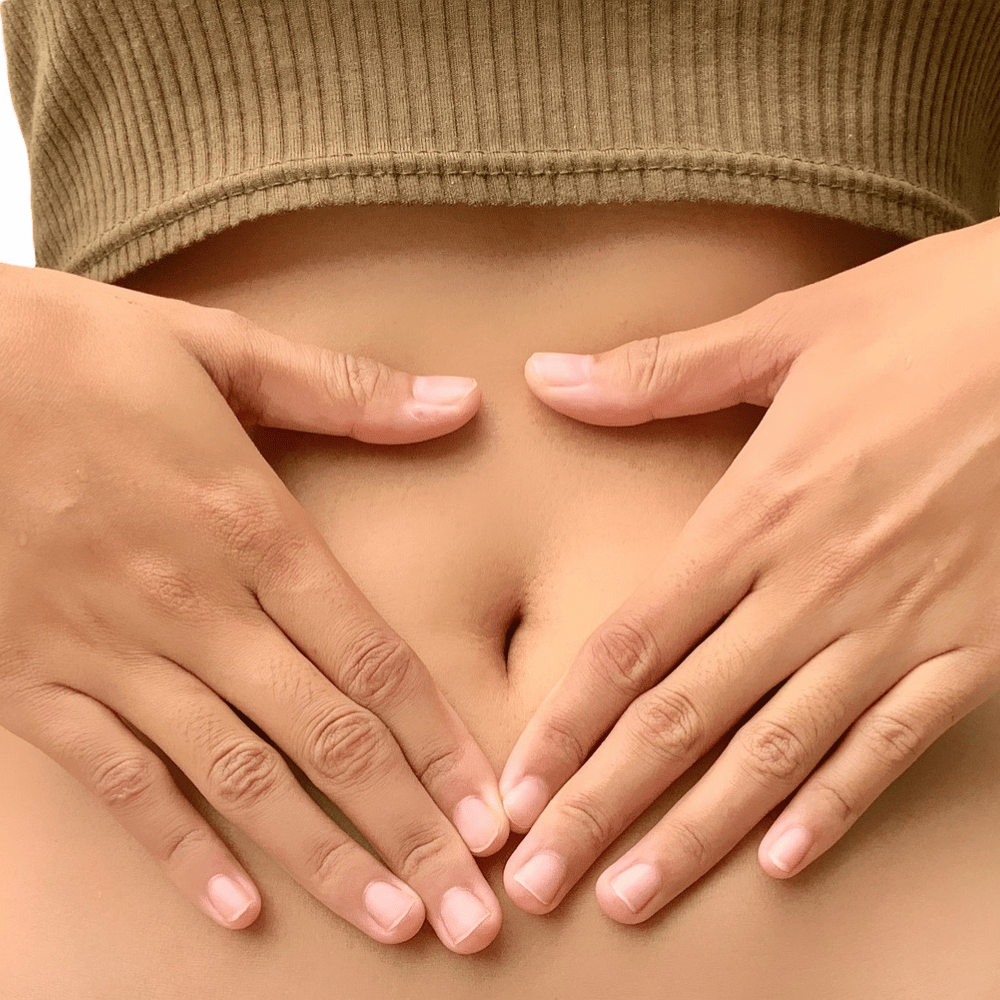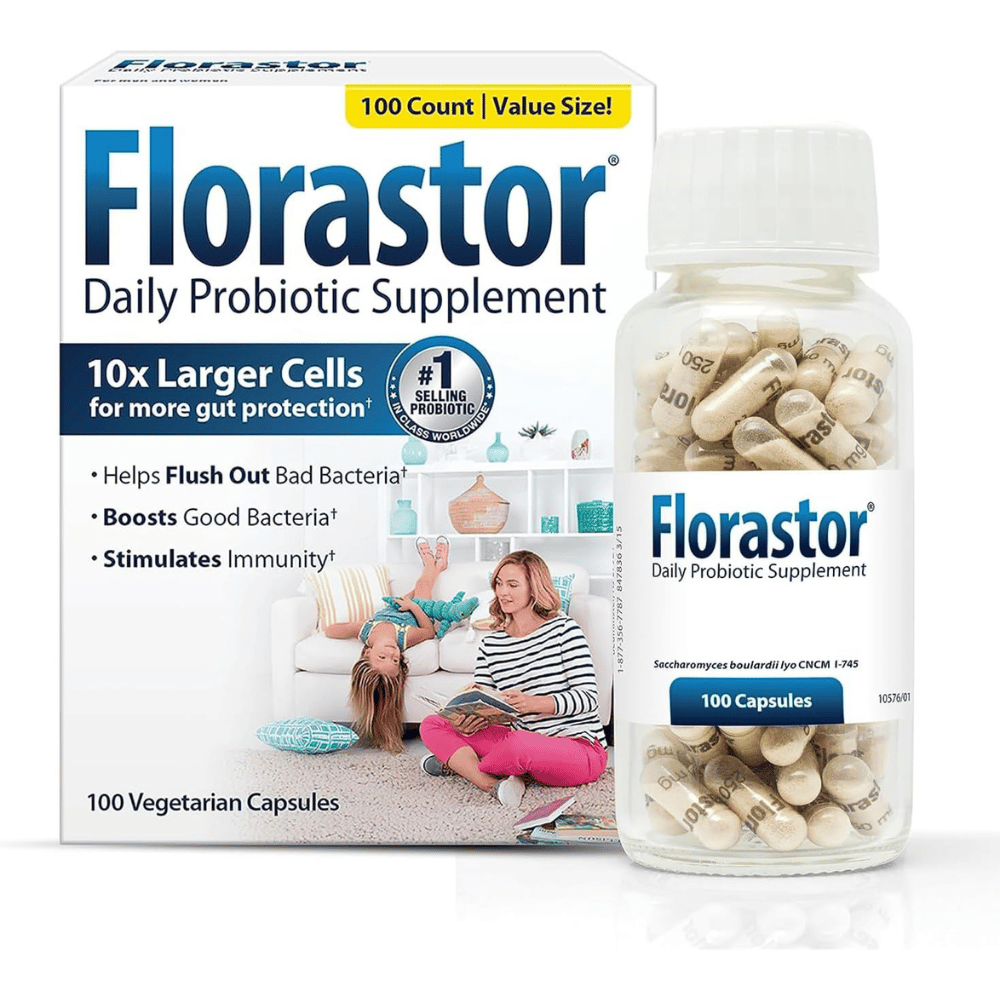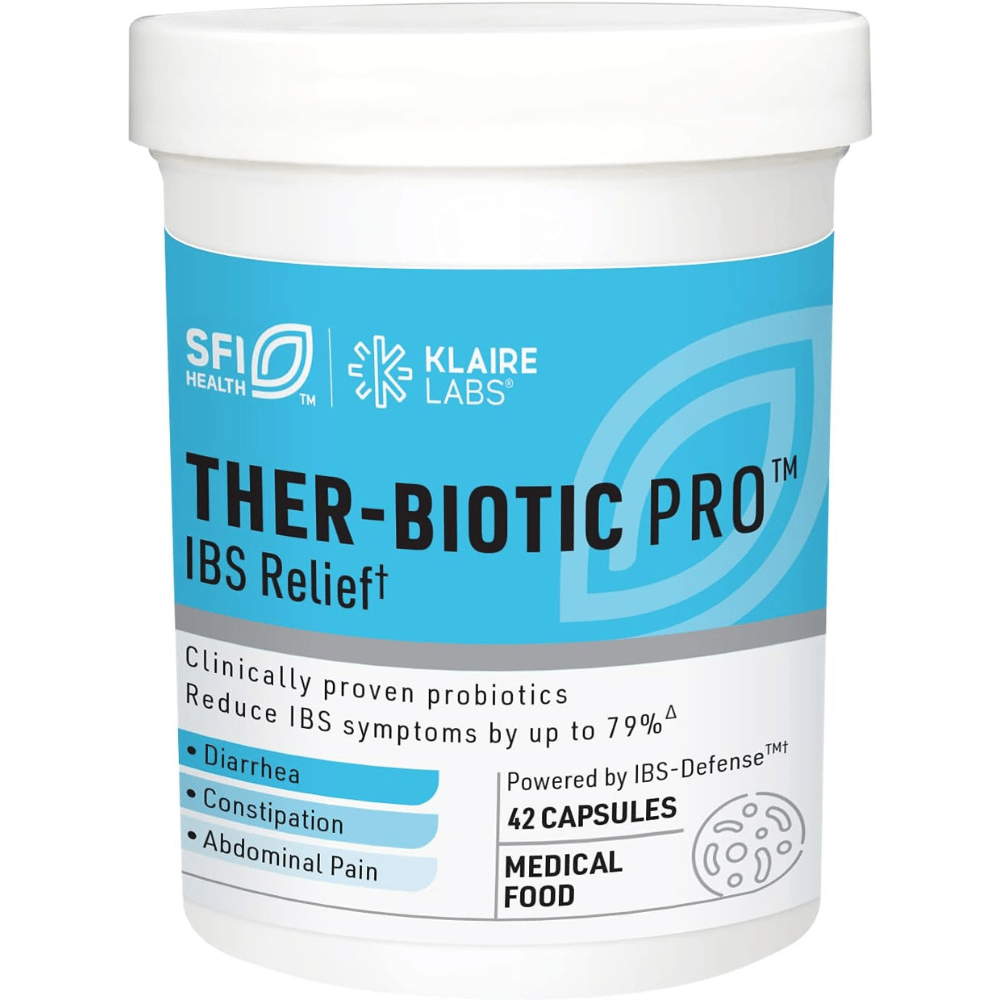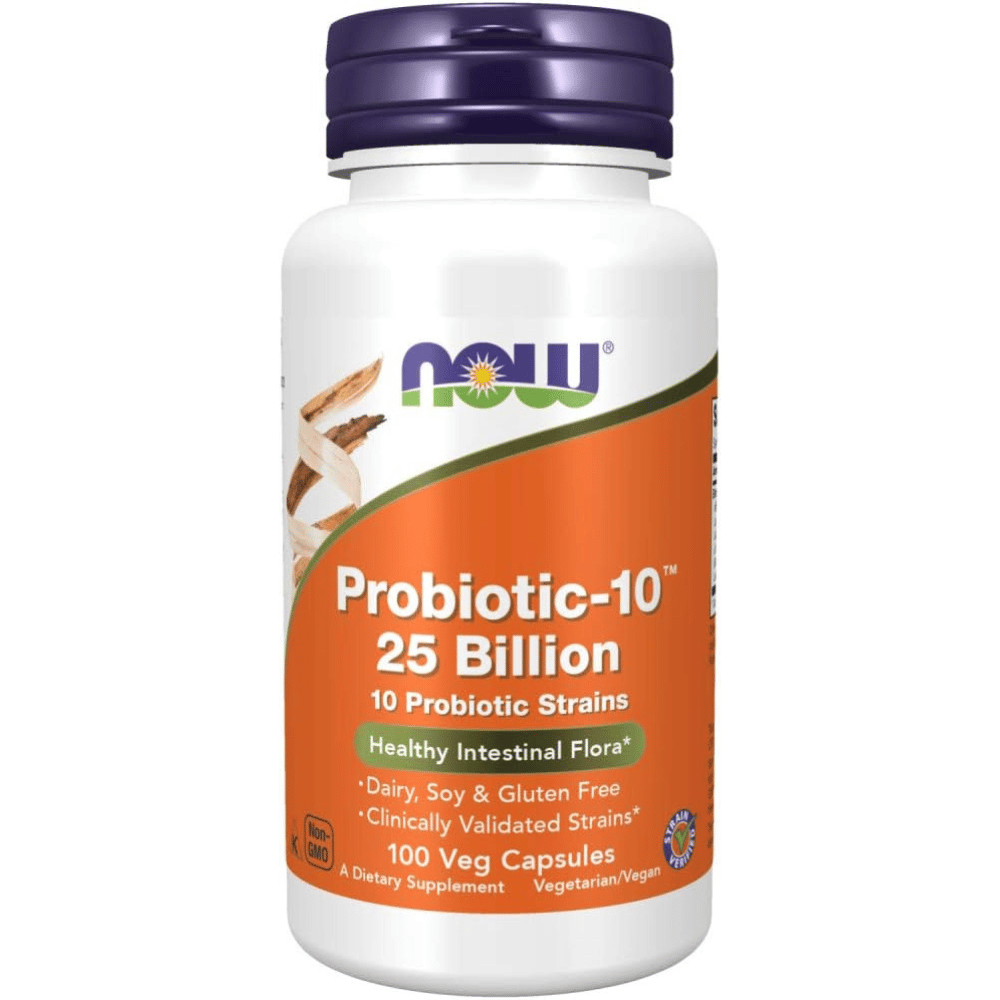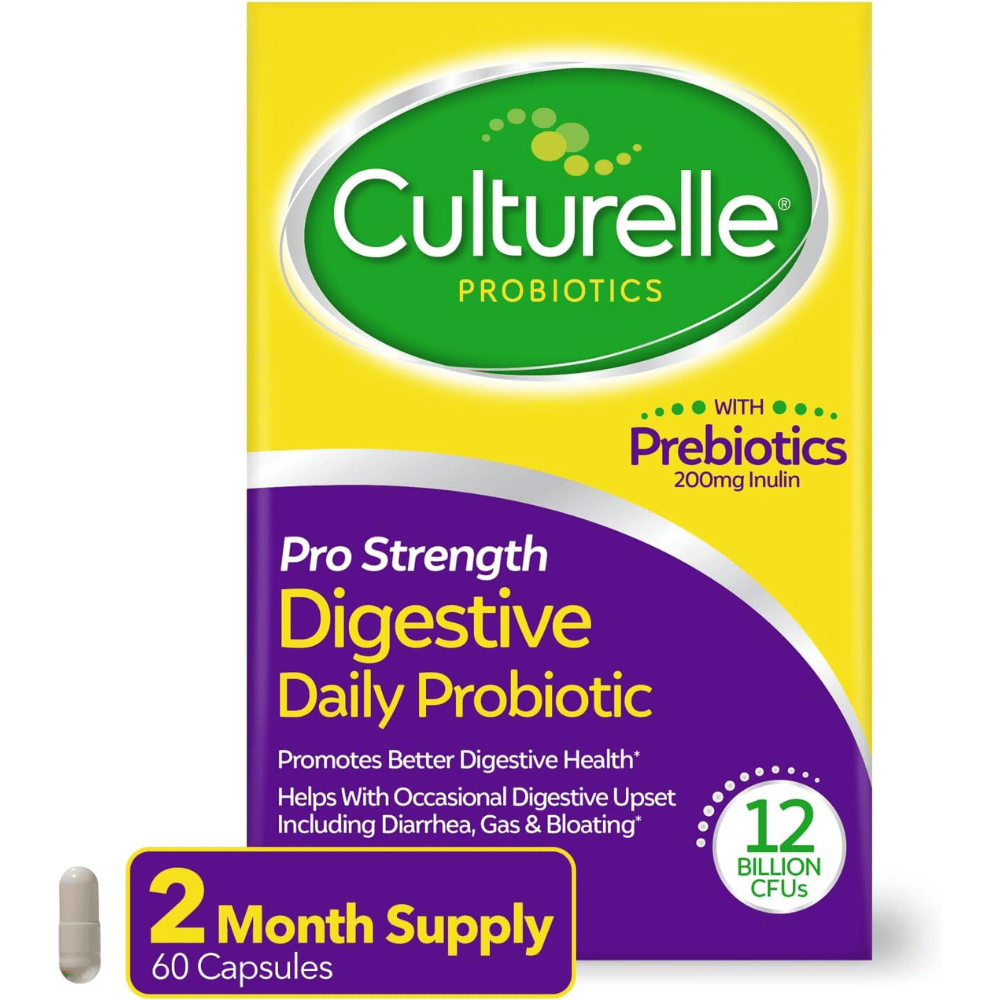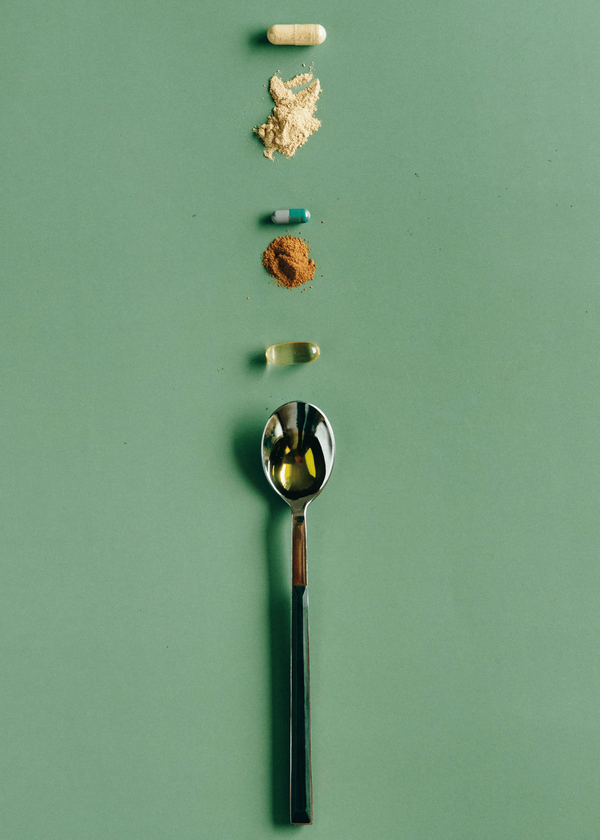Irritable Bowel Syndrome (IBS) is a common disorder that affects the large intestine, leading to symptoms such as abdominal pain, bloating, gas, diarrhea, and constipation. Probiotics have been identified as a potential remedy for alleviating IBS symptoms by restoring the balance of gut bacteria. This article delves into the best probiotics for IBS, providing insights into how they work and which strains are most effective.
Key Takeaways:
- Probiotic supplements can play a crucial role in managing IBS by improving gut health and alleviating symptoms.
- Specific probiotic strains have been clinically proven to benefit individuals with IBS, particularly Bifidobacterium and Lactobacillus species.
- Choosing the right probiotic requires understanding the different types of IBS and the strains that are most effective for each.
Understanding IBS and the Role of Gut Bacteria
Irritable Bowel Syndrome is a chronic condition that can significantly impact the quality of life. The exact cause of IBS is not well understood, but it is believed that a combination of gut-brain axis alterations, motility issues, and changes in the gut microbiota contribute to the syndrome. The role of gut microbes in digestive health is critical, as these microorganisms aid in digestion, support the immune system, and protect against harmful bacteria.
Probiotics for irritable bowel syndrome work by introducing beneficial bacteria into the gut. These microorganisms can help restore the balance of gut flora, which may be disrupted in individuals with IBS. By enhancing the gut microbiome, probiotic bacteria can aid in reducing inflammation, normalizing bowel movements, and alleviating abdominal bloating associated with IBS.
Identifying the Best Probiotic Strains for IBS
When it comes to selecting the best probiotic for Irritable Bowel Syndrome, the specific strains of bacteria used in the supplement are of paramount importance. Clinical trials have identified several strains that are particularly beneficial for IBS sufferers. Among these, Lactobacillus plantarum and Bifidobacterium species stand out for their effectiveness in alleviating the symptoms of IBS.
For instance, Bifidobacterium infantis has been shown to significantly improve IBS symptoms, including abdominal pain, bloating, and bowel movement irregularity. Similarly, Lactobacillus plantarum is known for its ability to strengthen the intestinal barrier and reduce inflammation, making it another top contender for the best probiotic for IBS.
The Impact of Probiotics on Digestive Health
Probiotics contribute to digestive health by enhancing the function of the gut barrier, competing with pathogenic bacteria for nutrients and space, and modulating the immune system. Regular intake of probiotics can lead to improvements in bowel movements and a reduction in the frequency and severity of irritable bowel syndrome symptoms.
Moreover, probiotics can influence the production of neurotransmitters and signaling molecules within the gut, which can have a positive effect on the gut-brain axis. This is particularly relevant for IBS, as this condition is often associated with stress and anxiety, which can exacerbate symptoms.
Diarrhea Predominant Irritable Bowel Syndrome (IBS-D)
Gastroenterology experts are now recommending a focused use of probiotics to help people with Diarrhea Predominant Irritable Bowel Syndrome (IBS-D). Two types of probiotics, Saccharomyces boulardii and Lactobacillus rhamnosus GG, are leading the way in providing relief.
Probiotics are more than just good bacteria; they're like specific medicines for the gut. They help restore balance and reduce the constant diarrhea symptoms. Studies show that these probiotics can lessen symptoms and improve gut health. They help control how often you need to go to the bathroom and reduce stomach pain, which are common problems for those with IBS-D.
By addressing the specific symptoms characteristic of IBS-D, these probiotics provide a customized management strategy. They represent more than a generic remedy; they are a personalized intervention designed to protect and promote a healthy gut. For those seeking to manage IBS-D effectively, incorporating these strains into one's daily health regimen could be a significant step towards achieving a more stable and comfortable gut microbiome.
Constipation Predominant Irritable Bowel Syndrome (IBS-C)
For those with constipation predominant IBS, different strains may be more beneficial. Bifidobacterium lactis, for example, has been shown to improve bowel regularity and soften stools, making it an excellent choice for IBS-C sufferers.
Probiotics can help people with IBS-C by making their gut work better and helping them have more regular bowel movements. These beneficial bacteria get to the root of constipation and can make a big difference to the intestinal microflora.
The Role of Prebiotics in Managing IBS-C
Prebiotics are a type of fiber that our bodies can't break down, and they act as food for probiotics. This helps the good bacteria in our gut grow and stay healthy. Studies have found that when prebiotics and probiotics are used together, a combination called synbiotics, they work even better to make bowel movements more regular and reduce symptoms. This shows that eating a balanced diet with both prebiotics and probiotics is key for a healthy digestive system.
Incorporating prebiotics into the diet can be done through the consumption of foods like garlic, onions, bananas, and chicory root, or through supplements. For individuals with IBS-C, prebiotics may enhance the efficacy of probiotics, creating a more favorable gut microbiota balance. It's essential to note that while prebiotics are generally safe, they can cause gastrointestinal symptoms like abdominal pain if introduced too quickly or in large amounts. Therefore, it's advisable to gradually increase intake and monitor symptoms closely, ideally under the guidance of a healthcare professional.
Simplified Innovations in Probiotic Delivery for IBS-C
New and simpler ways to take probiotics are changing how we treat IBS. Instead of just capsules and powders, scientists are looking at methods like microencapsulation. This technique helps more good bacteria survive the journey through the stomach and get to the intestines where they help the most. To make sure these new methods work, clinical trials are important. They test how well these innovations help with IBS-C symptoms.
Time-release probiotics are also exciting. They slowly release good bacteria in the gut, which might help IBS symptoms more steadily. These precise methods could make probiotics work better because they're designed to get through the stomach's acid. Clinical trials are key to making sure these new probiotics are safe, figuring out the best dose, and seeing how well they work for people with IBS-C.
Probiotics for IBS-A (also known as IBS-M)
Individuals diagnosed with IBS-A, or IBS-M, often experience a fluctuating pattern of symptoms, including diarrhea, bloating, abdominal pain, and constipation. This subtype of Irritable Bowel Syndrome is characterized by its alternating or mixed symptom presentation.
In managing IBS-A, pinpointing a specific symptom for treatment can be challenging. A recommended initial approach is the administration of a high-quality, daily probiotic to provide comprehensive support for gut health. An imbalance in gut microbiota is believed to play a role in the manifestation of IBS symptoms.
Clinical trials have identified two probiotic strains, Lactobacillus acidophilus NCFM and Bifidobacterium lactis Bi-07®, that are particularly beneficial for individuals with IBS-A. These strains have demonstrated efficacy in regulating bowel movements and alleviating symptoms such as bloating, abdominal distension, and cramps. Additionally, Lactobacillus acidophilus NCFM® alone has shown positive outcomes in improving a range of IBS symptoms.
Probiotics for IBS-U
For individuals whose symptoms do not align with the previously described types of IBS, IBS-U (Undefined or Unclassified) may be the appropriate diagnosis. This variant is marked by a stool consistency that does not correspond with the defined categories of IBS. Patients may encounter both loose, watery stools and firmer stools, yet each occurs less than 25% of the time. Although IBS-U is less prevalent than other forms, the underlying causes are similar, encompassing dietary factors and a potential imbalance of gut and bowel bacteria. Research also indicates a possible gut-brain axis involvement.
In managing IBS-U, it is advisable to commence with probiotic strains that have demonstrated efficacy in alleviating a range of symptoms. Strains such as Lactobacillus acidophilus NCFM® and Bifidobacterium lactis Bi-07® are recommended. Following a supplementation period of approximately one month, patients may notice a significant improvement in symptoms or a shift towards a predominant symptom type, which could then allow for the introduction of more specialized strains for targeted relief.
Additionally, identifying potential triggers is crucial; therefore, maintaining an IBS symptom diary is recommended to track and manage the condition effectively.
Probiotics And Post-Infectious IBS
It is estimated that approximately 10% of individuals with Irritable Bowel Syndrome attribute the onset of their symptoms to an initial gastrointestinal disturbance. Notably, severe infections such as gastroenteritis or those caused by parasites are frequently implicated in the development of this variant of IBS.
Research indicates several risk factors that may predispose an individual to post-infectious IBS. These include the length of the initial illness, smoking status, gender (with females being at higher risk), a history of depression, or the occurrence of stressful life events within three months prior to the onset of symptoms.
Patients diagnosed with this form of IBS often experience a predominance of diarrhea or a combination of bowel habit alterations. The administration of the probiotic yeast Saccharomyces boulardii is recommended to target the underlying infectious agent and may provide symptomatic relief for IBS. Additionally, a comprehensive probiotic regimen may be beneficial in managing other related symptoms.
IBS and Bloating
People with all forms of IBS may also suffer from occasional bloating. It can be aggravated by factors such as stress or eating particular foods which challenge the digestive system, for example, gluten- or dairy-containing foods. However, as mentioned, many different high-quality probiotic strains have been shown to alleviate and prevent pain and IBS bloating, including Lactobacillus acidophilus NCFM®, Bifidobacterium lactis Bi-07® 15 and Bifidobacterium infantis 356248. Strains like Lactococcus casei Rosell-1058 assist with the digestion of problem foods by producing enzymes which break down starch and lactose.
At the end of the day, everyone is different, and IBS bloating sufferers will have different gut floras to one another. With probiotics, it is often a case of trial and error to find which species and strains work for that individual. There is no harm in 'mixing and matching' different products if this works for you. You can't take 'too many' probiotics.
Prebiotics and Their Role in Managing IBS
Individuals with Irritable Bowel Syndrome often inquire about the suitability of prebiotics for their condition, particularly when certain prebiotic-rich foods trigger adverse reactions. The question arises: are prebiotics beneficial for managing IBS, and if so, which prebiotics are most effective?
For those experiencing bloating or digestive discomfort from specific prebiotic foods, the decision between using a prebiotic, probiotic, or a combination of both—known as a synbiotic—requires careful consideration to avoid further gut irritation.
It is advisable for individuals with a heightened sensitivity to high FODMAP foods, such as garlic, onions, apples, and leeks, to consult with a healthcare professional and potentially adopt a low FODMAP diet to alleviate gut distress. During the initial elimination phase, which should not exceed four weeks, the avoidance of most prebiotic supplements is typically recommended.
For individuals who tolerate prebiotic foods well, the question remains: which prebiotic supplements are optimal for IBS management? Current research indicates that high-dose synbiotic supplements, particularly those containing Fructooligosaccharides (FOS), have demonstrated efficacy in improving bowel symptoms and fatigue in IBS patients when compared to a placebo.
Prebiotics are also beneficial for IBS with constipation (IBS-C). FOS, a soluble fiber, contributes to stool bulk and water absorption, which aids in softening the stool. Additionally, it promotes peristalsis—the movement of food through the gut. FOS and similar prebiotics also stimulate the proliferation of beneficial gut bacteria already present in the gut.
The Synergistic Effects of Multi-Strain Probiotics
While single-strain probiotics can be effective, multi-strain probiotics may offer a synergistic effect that can further alleviate symptoms. These formulations combine different strains of beneficial bacteria, each with its unique properties, to provide a comprehensive approach to managing IBS.
Multi-strain probiotics can target various aspects of IBS, from reducing inflammation to normalizing bowel movements. By incorporating a diverse range of probiotic strains, these supplements can cater to the complex nature of IBS and offer a more robust solution for those seeking relief from their symptoms.
The Importance of Clinical Trials in Probiotic Selection
In the selection of a probiotic for IBS, the importance of substantiation through clinical trial evidence cannot be overstated. Such research offers indispensable information regarding the effectiveness of particular probiotic strains and their influence on IBS-related symptoms. Clinical trials serve a pivotal role in discerning which probiotics possess a documented history of efficacy in mitigating the manifestations of IBS. Utilizing data underpinned by scientific research enables individuals afflicted with IBS to make judicious choices concerning the probiotic supplements that hold the greatest potential for symptomatic relief.
Probiotics and the Immune System
Understanding the intricate connection between probiotics and immune system health is crucial when considering natural interventions for Irritable Bowel Syndrome. Probiotics, known for their beneficial bacteria, have the unique ability to modulate immune responses. This function is particularly advantageous for individuals battling IBS, as the condition is often linked to immune dysregulation.
By optimizing the immune system's response to pathogens, probiotics play a pivotal role in sustaining a balanced gut microbiome. This balance is essential in preventing the proliferation of pathogenic bacteria, which can exacerbate symptoms. Consequently, incorporating probiotics into one's diet may not only alleviate the discomfort associated with IBS but also foster long-term digestive wellness.
For those seeking to manage IBS symptoms, understanding the benefits of probiotics for a healthy gut and their potential to enhance immune function is a step towards achieving a more harmonious digestive system and improved overall health.
Maximize the Benefits of Probiotics for IBS Relief: Choosing High-Quality Supplements
When seeking relief from Irritable Bowel Syndrome, the quality and potency of probiotic supplements play a pivotal role in their effectiveness. To experience the full therapeutic benefits, it's crucial to select probiotics that guarantee the viability of strains up to the expiration date. These supplements should also provide a significant number of colony-forming units (CFUs), which is vital for ensuring a therapeutic impact on IBS symptoms.
In addition to the CFU count and strain viability, the manufacturing process and storage conditions are key factors that influence the potency of probiotics. It's advisable for consumers to opt for products from reputable companies that maintain stringent quality control standards. This commitment to quality helps to ensure that the supplements you choose are not only safe but also effective in delivering the desired health outcomes.
For those managing IBS, incorporating high-quality probiotic supplements into their routine can be a game-changer. By prioritizing products that meet these standards, you can enhance your digestive health and find the relief you've been searching for.
Personalizing Probiotic Therapy for Irritable Bowel Syndrome
Personalizing probiotic therapy is crucial for achieving the best results in managing IBS. This involves considering individual symptoms, the type of IBS, and any other health conditions that may be present. By tailoring the probiotic regimen to the specific needs of the individual, the chances of symptom relief and improved quality of life are greatly increased.
Healthcare professionals can provide guidance on the most appropriate strains and formulations based on the patient's unique situation. This personalized approach ensures that the probiotic therapy is optimized for each person's digestive health needs.
Probiotics and Their Role in Managing IBS
The relationship between probiotics and Irritable Bowel Syndrome (IBS) is a subject of frequent inquiry. Questions such as "Can probiotics be utilized in the treatment of IBS?", "Is it advisable for individuals with IBS to use probiotics?", and "Do probiotics offer benefits for those with IBS?" are common. Research from numerous clinical trials indicates that probiotics can indeed alleviate symptoms of IBS, with many patients reporting positive outcomes. The National Health Service (NHS) endorses the use of probiotics for managing IBS, noting their compatibility with most IBS medications, both prescription and over-the-counter. Probiotics represent a safe and natural approach worth considering.
Nevertheless, it is imperative for individuals who suspect they have IBS to seek a formal diagnosis from a healthcare professional before commencing any form of treatment.
Probiotics may offer relief for symptoms due to their potential in addressing dysbiosis, or the imbalance of gut microbiota. The gut microbiome, comprising various live bacterial populations within the gastrointestinal tract, plays a crucial role in this context. Emerging research supports the connection between IBS-D symptoms and the presence of detrimental bacteria such as Brachyspira. It is observed that individuals with IBS frequently exhibit reduced levels of beneficial bacteria, for example, Bifidobacterium species, and heightened levels of harmful bacteria or pathogens, including those from the Clostridium species.
NHS Endorses Probiotics for IBS Management
The National Health Service (NHS) has officially recognized probiotics as a beneficial aid in alleviating symptoms associated with Irritable Bowel Syndrome (IBS). This development marks a significant acknowledgment within the probiotic sector, as such recommendations were not historically included in NHS guidelines, despite common practice in numerous European medical institutions.
The National Institute for Health and Clinical Excellence (NICE), known for its rigorous, evidence-based guidelines that inform healthcare professionals' practices, now advises a trial of probiotics extending over a minimum period of four weeks for individuals experiencing IBS symptoms.
The Best Probiotics For IBS On The Market
How We Choose
Given the vast array of probiotic options on the market, determining the most suitable one for individual needs can be challenging. Our team has conducted extensive research on numerous products to identify the top five probiotics for IBS. This effort is aimed at making the selection process for consumers easier, enabling them to find the appropriate probiotics without having to guess or waste money on something that won't work.
We hope you find your next best buy from the list below! Each product was independently selected by our editors. BlakesBestBuys may collect a share of sales or other compensation from the links on this page if you decide to buy something (that's how we stay in business). Enjoy finding your next best buy!
What We Love About It
Each serving of Florastor's supplement contains a potent 10 billion CFU of probiotics, making it an excellent choice for individuals seeking to alleviate symptoms associated with Irritable Bowel Syndrome.
The product is composed of Saccharomyces Boulardii, a distinct bacterial strain that has undergone research for its efficacy in preventing diarrhea and in supporting the preservation and restoration of intestinal barrier function.
Why Florastor Daily Probiotic Supplement Stands Out
This probiotic supplement is formulated with 250mg of the proprietary strain Saccharomyces boulardiiCNCM I-745, which is dedicated to promoting a healthy gut. This particular strain boasts a legacy of over 65 years of application and scientific study.
Additionally, these supplements are designed with a 3-year shelf life and do not necessitate refrigeration. However, it is important to note that exposure to excessive heat or direct sunlight may compromise the integrity of the product.
What We Love About It
Clinically Proven Probiotics for IBS Management
This formulation is designed specifically for IBS. It includes clinically validated probiotics, one of which has demonstrated a significant reduction in common IBS symptoms: constipation decreased by 79%, diarrhea by 70%, and abdominal pain by 67%. Additionally, it has been shown to enhance mental wellbeing by 110%.
Why Klaire Labs Ther-Biotic Pro IBS Relief Stands Out
This product is crafted to ensure gentleness and safety for daily consumption, incorporating clinically-researched colony-forming unit (CFU) quantities. This deliberate approach avoids the potential for adverse reactions that can arise from excessive dosages. Furthermore, our formulation is free from GMOs, dairy, gluten, and other prevalent allergens, aligning with the needs of individuals with sensitivities.
A rigorous clinical study focusing on the L. plantarum strain present in Ther-Biotic Pro IBS Relief has demonstrated a significant average reduction in constipation symptoms, achieving a 79% decrease. This underscores the efficacy of our product in addressing gastrointestinal challenges.
This high quality supplement from NOW packs 10 unique strains of probiotics and 25 billion CFUs into a single serving.
While research on the effectiveness of probiotics in reducing bloating is mixed, some studies have shown Bifidobacterium lactis helps reduce bloating in adults with IBS
Why NOW Supplements Probiotic-10 25 Billion Stands Out
The manufacturing process at NOW has been rigorously evaluated and has achieved an NPA A-rated GMP certification. This comprehensive assessment covers all facets of their production, including the meticulous examination of laboratory and testing methodologies. These methods are designed to ensure stability, potency, and precise product formulation.
Furthermore, we incorporate bacterial strains that have undergone clinical validation, confirming their efficacy in bolstering immune health.
What We Love About It
Culturelle probiotics are sourced from natural ingredients and are backed by scientific research to maintain equilibrium within your digestive system. They are effective in mitigating sporadic instances of gas, bloating, and diarrhea.
Culturelle Pro Strength contains 12 billion CFUs (colony-forming units) of the extensively researched LGG probiotic strain, which is demonstrated to bolster digestive and immune health. Additionally, it includes the prebiotic inulin to further support the probiotic function.
Why Culturelle Pro Strength Daily Probiotic Stands Out
Culturelle Pro Strength Daily Probiotics for Men & Women are crafted with the clinically researched probiotic strain, Lactobacillus rhamnosus (LGG). This particular strain has been proven to withstand the severe conditions of stomach acids, ensuring that the probiotics are delivered effectively to the intestines. The safety and efficacy of the LGG probiotic are supported by over 1,000 scientific studies and 30 years of dedicated research. Furthermore, Culturelle Pro Strength adheres to dietary preferences and restrictions as it is vegetarian-friendly and free from gluten, milk, soy, and preservatives.
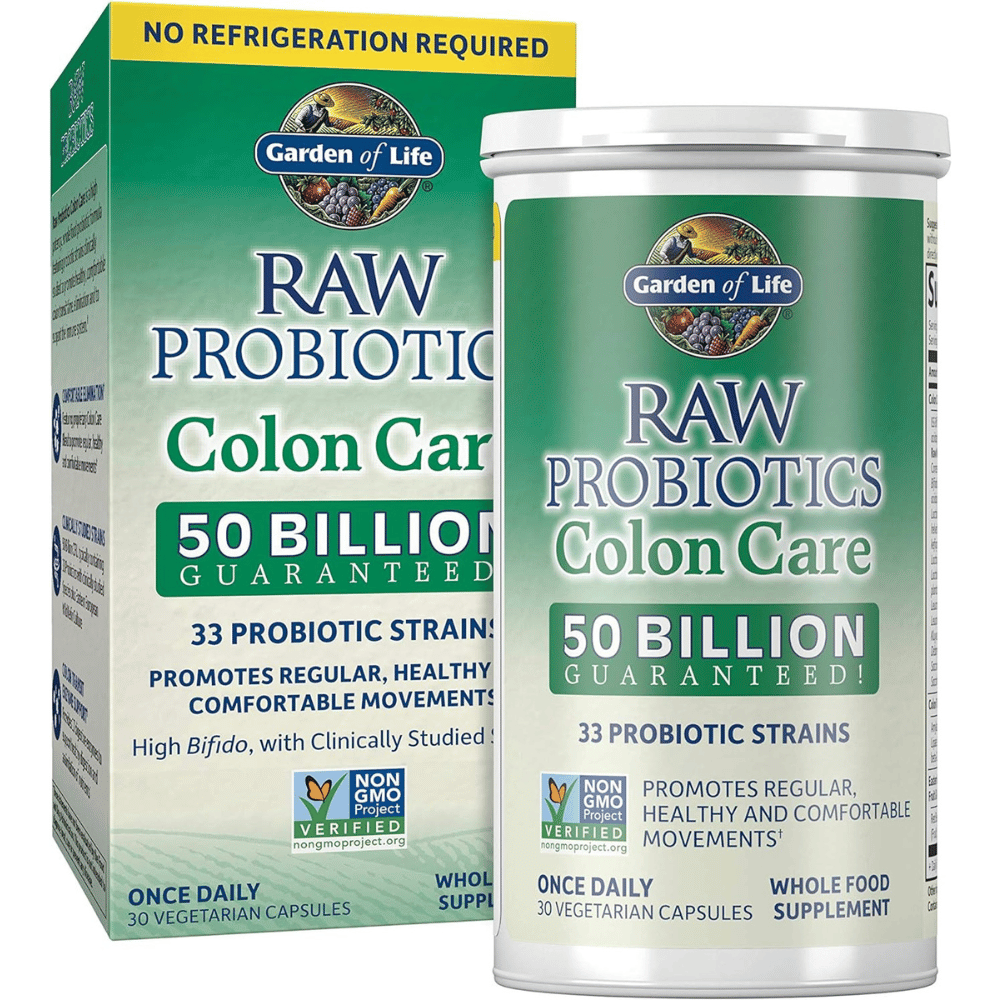
Best Probiotics For IBS Mixed Symptoms
Garden of Life RAW Probiotics Colon Care
What We Love About It
This product is meticulously formulated with a comprehensive blend of 33 probiotic strains, 17 digestive enzymes, and a carefully selected assortment of fruits and vegetables. This probiotic is expertly crafted to enhance a healthy gut significantly.
Extensive research has demonstrated the efficacy of probiotics in alleviating symptoms linked to Irritable Bowel Syndrome. Additionally, digestive enzymes play a crucial role in the efficient breakdown of food, contributing to overall digestive wellness.
Why Garden of Life RAW Probiotics Colon Care Stands Out
This formulation guarantees 50 Billion CFU from 33 distinct probiotic strains, coupled with an Eastern European Wild Kefir Culture. This potent combination is designed to encourage regular, healthy, and comfortable digestive movements, while simultaneously bolstering the immune system. All these benefits are conveniently delivered in a small, once-daily capsule.
Summary
Probiotics offer a promising avenue for individuals suffering from Irritable Bowel Syndrome. By understanding the role of gut bacteria in IBS and selecting the appropriate strains of probiotics, it is possible to alleviate symptoms and improve quality of life. The best probiotic for IBS will depend on the individual's symptoms and the specific subtype of IBS they have. Clinical trials and quality assurance are key factors in choosing an effective probiotic supplement. Personalizing probiotic therapy to the individual's needs can further enhance its effectiveness in managing IBS.
FAQ'S
Can probiotics cure IBS?
While probiotics cannot cure IBS, they can play a significant role in managing and alleviating symptoms. It is important to use them as part of a comprehensive treatment plan that may include diet changes, stress management, and medication as advised by a healthcare professional.
How long does it take for probiotics to work for IBS?
The time it takes for probiotics to have an effect on IBS symptoms can vary. Some individuals may notice improvements within a few weeks, while for others, it may take several months. Consistency and adherence to the probiotic regimen are important for achieving the best results.
Are there any side effects of taking probiotics for IBS?
Probiotics are generally considered safe and well-tolerated. However, some individuals may experience mild side effects such as bloating or gas when they first start taking probiotics. These symptoms usually subside as the body adjusts to the new gut bacteria. It is always recommended to consult with a healthcare provider before starting any new supplement.
Should IBS patients take probiotics?
Probiotics have been shown to improve overall stool frequency, gut transit time, and stool consistency. Bacillus coagulans strain LBSC (DSM17654) has been shown to be efficacious in alleviating IBS symptoms such as bloating, abdominal pain, constipation, diarrhea, nausea, vomiting, and stomach rumbling.
Is IBS better with probiotics?
Certain probiotic strains that have been proven to alleviate IBS symptoms. The two main probiotic groups for IBS are Lactobacillus and Bifidobacterium: Bifidobacterium - includes strains such as Bifidobacterium bifidum MIMBb75, which has been shown to significantly improve IBS symptoms of tummy cramps, bloating, and diarrhea.
What is the best probiotic for IBS
Saccharomyces boulardii is one of the best probiotics for IBS-D symptoms. This unique probiotic is in fact a yeast, the only yeast 'friendly' enough to be called a probiotic. S. boulardii has over 50 years of research supporting its use, and is recommended in many hospitals worldwide for diarrhea.
Which is better for IBS probiotics or digestive enzymes?
Choose digestive enzymes if you have specific food intolerances or one of the conditions associated with exocrine pancreatic insufficiency. Choose probiotics if you have IBS, SIBO, or other types of gut imbalance.
When is the best time to take probiotics for IBS?
Taking them on an empty stomach is a good idea for most probiotics as it improves their survival rates through stomach acid. Many people take them first thing in the morning after waking up—about 30 minutes before breakfast or 2-3 hours after your last meal in the evening before bed.

